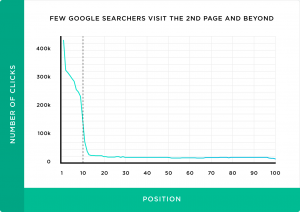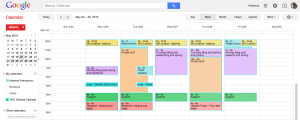What comes to mind when you think about professional success? You’re likely to associate success with satisfaction. How does one achieve that sort of satisfaction? According to a recent survey from Manifest, professional success means doing interesting, fulfilling work.
Doing what you love and are passionate about has a positive domino effect on one’s overall life. In accordance with the survey results, professional success enables individuals to receive a higher salary and feel confident about taking on more responsibility in the workplace. However, it can be tough to figure out what kind of fulfilling work to do and if that work is right for you. The best way to find fulfilling work may be to ask, and answer, these three questions.
1. What do family members and friends consider to be your strengths?
This is generally not the first question one might ask when figuring out what they love to do. It’s usually phrased as asking yourself what you love to do.
However, asking only yourself may not give you the most complete version of the answer you’re looking for. It’s time to bring on the sounding board!
Ask family members, friends, mentors, and former classmates and coworkers how they would describe you and the strengths you bring to the table. They might be able to pick up on subtle cues you weren’t aware of and bring them to your attention. For instance, they might notice you love to take the lead and plan for special events. Or, they have witnessed moments where you have gone out of your way to help out and make others feel at ease during difficult situations. Through their observations, you’ll be better equipped to figure out what you’re good at and how those strengths can aid to finding fulfilling work.
2. Do you have a personal vision statement?
Sometimes we think that fulfilling work needs to be specific. It needs to tick off all the boxes and ideally fit within that five-year interview question timeline. You know — the one about where you’d like to be in five years’ time?
Sticking to that kind of plan doesn’t always make for a satisfied life. It can have an inverse effect: forcing us to feel stuck in a career that isn’t the right fit, stagnating, and disengaging from work altogether.
Rather than push for specifics, focus on your internal needs. Create a personal vision statement. This varies from a mission statement which is present in this moment. A vision statement helps you to anticipate the future and what you may ultimately become. Consider addressing the following when drafting a vision statement.
- What do you love to do and why, on an emotional scale, do you love it?
- What gets you up in the morning? (Hint: the answer cannot be your alarm clock!)
- Which activities matter to you?
- Where would you like to end up and how can this work help you get there?
3. What makes up your gratitude mindset?
It’s a bit of an unspoken rule that fulfilling work is often work created with supportive conditions. You might work for a non-profit that is guided by a values-based mission. Or, you might work with a team of individuals known for solving problems. At the end of the day, you feel good about the work you are doing and know you are adding value to the world.
Finding fulfilling work means establishing a gratitude mindset. Think of five things you are grateful for each day. Write them down in a notebook to keep track. Consider obvious areas of gratitude, like the aforementioned fellow coworkers and career, and not-so-obvious parts of the day, like spotting a cute dog during your jog or laughing with friends over a phone call.
Creating a gratitude mindset does more than allow you to slow down and smell the flowers. It also reminds you that you are full of value and can bring this value to any line of work. You’ll attract fulfilling work and plenty of goodwill along the way — the best of both worlds!
Business & Finance Articles on Business 2 Community
(31)
Report Post







